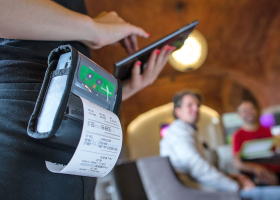-
EET is back: From 2027 electronic sales records will be mandatory again, but more modern and simpler

After three years, the return of the electronic sales registration (EET) is being prepared in the Czech Republic and is set to take effect again from January 2027. The new generation of EET promises significant simplifications, such as removing the obligation to print receipts and the option to use mobile applications. The ANO movement, which is advocating this step, sees the restoration of EET as a key tool in the fight against the grey economy and in ensuring fair conditions for entrepreneurs. What will the new rules look like and what can entrepreneurs expect?
Electronic sales records (EET) are set to return to the Czech Republic from January 2027, announced the deputy chair of the ANO movement and the main candidate for the post of finance minister, Alena Schillerová. After EET was abolished three years ago, the government plans to reintroduce it based on technological advances that will allow a more modern and less bureaucratic system. It will no longer be necessary to print receipts; entrepreneurs will be able to use mobile apps or their own cash registers, which should simplify the whole process.
While ANO wants EET to apply to the majority of entrepreneurs accepting payments from customers, other coalition parties, for example the Motorists, are seeking exemptions mainly for small businesses. Schillerová, however, does not strongly support exemptions and believes a consensus can be found. According to her, EET helped the budget by increasing tax revenues by up to 12 billion koruna.
Operators of restaurants and other catering establishments, who were previously one of the key groups subject to EET, mostly welcome the change. According to the head of the gastronomy section of the Chamber of Commerce, the system brought them greater transparency and modernization of their businesses, and the new technical solution is expected to be even simpler and more user-friendly.
The return of EET meets resistance from some political parties and members of parliament who in the past criticized it as excessive bureaucracy and a burden on entrepreneurs. However, most economists now consider the introduction of EET necessary to level the playing field in the market and curb the shadow economy. Experts say the new introduction could bring tens of billions of koruna into the state coffers, especially from value-added and income taxes.
The proposal also includes certain reliefs, such as a lower VAT on non-alcoholic beverages and a non-tax tip system for restaurants, which raises discussions about the fairness of these measures toward other sectors.
EET is thus heading back after a four-year pause, and its introduction promises a more modern and efficient control of sales recording in a dynamically changing business environment.







